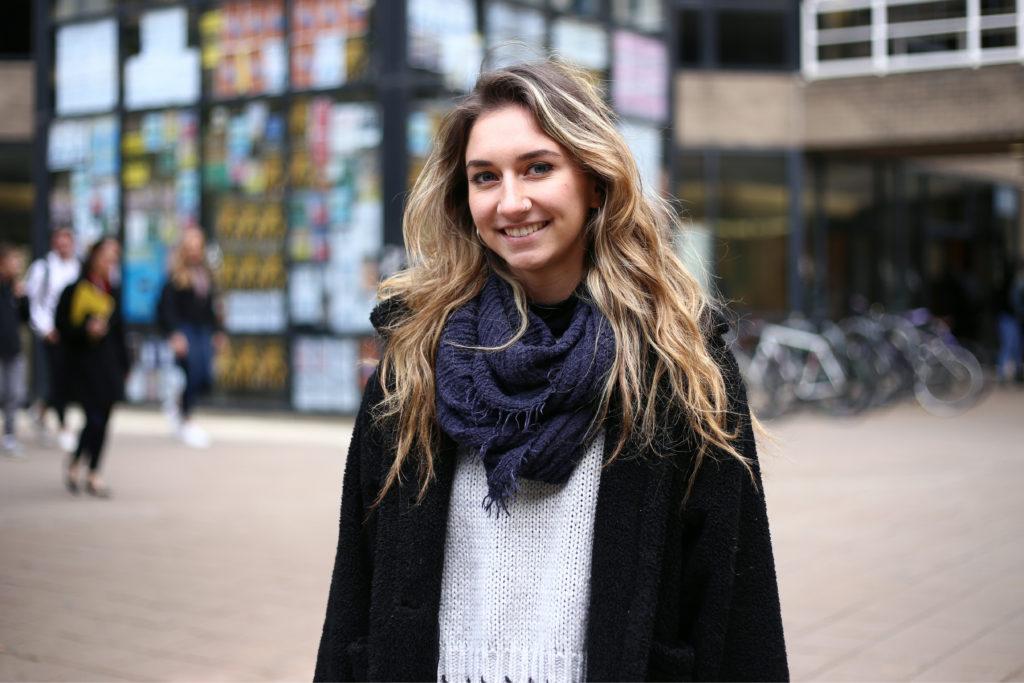A senior is localizing a national campaign to promote the use of tap water and encourage sustainable practices on campus.
Senior Mia Simonetti brought the Take Back the Tap project to GW last month in an effort to preserve water resources by discouraging the use of bottled water. The project aims to persuade administrators to allocate funds to create more water bottle refill stations on campus, Simonetti said.
“Tap water is our most inalienable right,” Simonetti said. “It shouldn’t be privatized or be something only certain people can have.”
Simonetti said by next semester, she hopes to register with the Center for Student Engagement and propose a resolution for one of GW’s buildings to install one or two more water refilling stations.
Simonetti said she is working with a team of 10 students who have made it their mission this semester to regulate single-use plastic on campus. She said the group is currently focused on garnering signatures for a petition it launched late last month, which asks students to pledge to ditch plastic water bottles and advocate for more water refill stations in “high trafficked buildings.” The petition has 85 signatures as of Wednesday.
She added that the student team is split into “mini committees,” including social media, research and development teams.
“It needs to happen at college campuses because not only are we learning how to shape what we want to do for the future, but we need to take into account that our future is what’s going to be impacted by all these changes,” she said.
Simonetti said her team has been in touch with several sustainability advisers and managers to articulate the campaign’s goals for the future. She said she hopes to reach out to and speak with Provost Forrest Maltzman and leaders in the Student Association this academic year.
“I want to get in touch with those people but we just have to figure out leverage and communicate our goal in a way that makes them want to do something,” Simonetti said. “Right now we are really trying to gather petitions and make it known that this is something at GW that people want.”
Simonetti said she is currently trying to secure a table in Kogan Plaza so the organization can raise awareness about the campaign, but because the group is not yet registered with the CSE, it would incur a $300 fee to get a table. She said she hopes that working with organizations like Green GW and Campaign GW to co-sponsor events will help the group get more name recognition on campus, and some members of these groups have circulated Take Back the Tap’s petition.
Simonetti added that she hopes to remove plastic water bottles from vending machines on campus, saying that funding for refillable stations on campus could come from reduced spending on contracts with machine vendors for plastic water bottles.
Max Gelber, the program manager for the sustainability minor, said he offered Simonetti, a sustainability minor, advice on how to best run her campaign and recommended that she reach out to other sustainability organizations on campus.
“In the short time I have been here, I have gathered that GW students are very into activism, really want policy change and really want to get involved in ensuring that our collective future is as best as it can be,” Gelber said.
Meghan Glynn, a senior and member of GW’s Take Back the Tap’s marketing and finance teams, said the campaign has the potential to make an impact on students’ and administrators’ plastic bottle usage. To promote the group’s message, Glynn said organization members will engage students in activities like water bottle giveaways, information sessions and trivia contests.
“At the very least, we’ll educate more students and community members to reduce their plastic bottle waste and start using a reusable bottle,” Glynn said. “At most, we have the potential to work with the administration to put pressure on local vendors to reduce the amount of single-use water bottles that are sold.”





